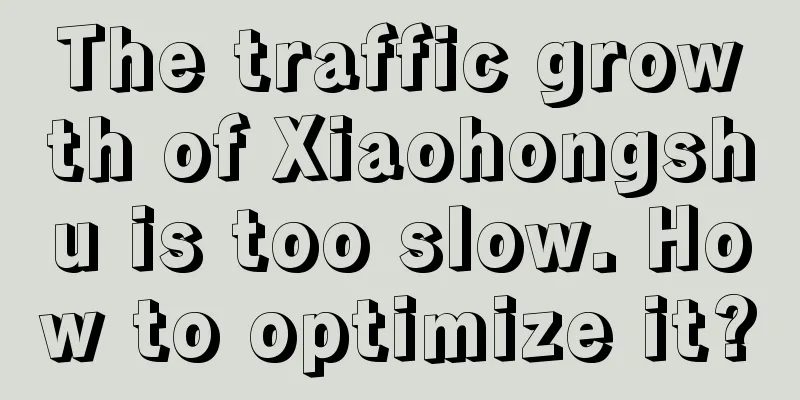How to operate physical stores in the same city?

It is difficult to run a physical store. I believe this is the voice of many physical store owners. Overcapacity, e-commerce competition, serious product homogeneity, market changes and trends, economic recession caused by the epidemic, high rents and cost pressures, and other factors have led to the internalization of physical store merchants, thinning profits, and making it increasingly difficult to do business. Various problems have followed one after another. Let’s take a look at what physical store retail is: A physical store is a "place" that connects "people" and "goods" together, which is what we often call "people, goods, and place."
Physical stores are now in dire straits, becoming increasingly inward-looking and depressed. Will the value of physical stores slowly disappear? Not at all. The shopping experience, services, social interaction, and entertainment of physical stores are values that cannot be replaced by e-commerce channels. It’s just that physical stores will gradually weaken the sales function and amplify the value of the experience. Physical stores can be used as traffic entry points, experience scenes, and social centers to guide in-store customers into online scenes, connect with users through private domain tools, and provide customers with online shopping scenes based on online platforms. By doing this, we can meet consumer needs and adapt to market development through an online + offline approach. However, many physical stores have not thought deeply about these issues and lack systematic thinking on how to attract and retain customers. Therefore, it is impossible for the stores to survive and make profits when the overall environment is bad and the competition is so fierce. The essence of business is traffic, and the core of traffic is customers (people). This article talks about how to solve the problem of "people". Step 1: DrainageThere are two ways to attract traffic: online and offline, which are usually called public domain traffic in marketing. Visibility = Sales Power The store needs to carry out continuous and extensive publicity through online and offline means to let people in the same city know about you. Here are some relatively low-cost methods I recommend to you: 1. Offline1. Brand joint activities: You can conduct joint activities with other merchants to attract traffic from each other. You can put other merchants’ promotional roll-up banners at the entrance of your store, and the other merchants can also promote yours. You can make some small flyers for takeaway restaurants and provide them with some benefits. You should know that if you sell 100 takeaway orders a day, you will have 100 promotion opportunities. What if you cooperate with 10 restaurants? 2. Outdoor advertising around stores: Spread the word. Brands and stores can only get exposure if they invest. Therefore, bus billboards around stores or any other advertising space that can promote the store brand can be utilized. This is to create an energy circle for the store. 2. Online1. Douyin: You can create a Douyin account and spend 500 yuan (the official minimum requirement) to conduct massive local promotion and promote your store in the form of videos. When creating a Douyin account in the same city, you don’t need to worry about whether the content should be vertical, but should pay more attention to local exposure. Think about what content can attract the attention of local people, so as to obtain more local recommendation traffic. The video material needs to make the viewers feel that it was posted by someone nearby, so try to shoot more streets and shops to increase the sense of familiarity, as well as some daily scenes. It doesn't need to be too elaborate, and you can shoot whatever you can think of, but it can't be too long or complicated. At the same time, the video must include landmarks and local topics. 2. Public account media in the same city: There must be platforms like public account media in your local area. The fees are generally between 200-500, which is not too expensive. Such platforms generally have more than 100,000 fans. You can place an advertisement to promote your store, but remember to put your public account on it as well. You spend 500 yuan to borrow its resources to direct traffic to your own private domain tools. You will make a profit. 3. WeChat advertising: You must have seen the advertisements in the circle of friends. Those are the advertisements placed by merchants on WeChat. You can also choose to place them in the same city. The charges are generally based on clicks or impressions. Step 2: RetainAfter you attract a lot of traffic (people) in the public domain through various online and offline methods, you must have a tool to carry the traffic, retain the attracted traffic, and establish a connection with him/her, so that you have a chance to convert. Many businesses simply advertise, but after advertising, they do not have a carrier to receive the traffic, resulting in traffic loss. This is why many shops do not have customer management. We usually call in-store promotion and operation: private domain traffic. Currently on the market, the private domain tools that carry traffic are mainly: WeChat official accounts, enterprise WeChat and WeChat communities, video accounts, and mini programs. These four are important tools for managing your customers and public domain traffic. After you have attracted traffic through online and offline methods, you should either let her/him follow your official account, guide them to your store, or let them add your corporate WeChat or join the group directly. In short, you have to retain the traffic. Step 3: ConversionIf you retain the traffic, you will establish a relationship with the customer. Next, you need to do two things:
Use WeChat for Business to provide one-on-one customer service and provide customers with services that exceed their expectations. Use corporate WeChat groups to create community attributes and allow customers to discuss with each other. You need to provide preferential activities to continue operating. In addition, you also need to provide incentive mechanisms to customers so that old customers will refer new customers to you. Final WordsThe combination of public domain and private domain is what we call: full-domain operation. For customers outside the store radius and far away from the store, merchants use public domain to obtain traffic, and then use private domain tools to make friends and guide customers to the store to buy. Within the store's coverage area, merchants need eye-catching store layouts and promotional activities to stimulate consumption, use private domain tools to fine-tune customer operations and provide services beyond expectations to lock in customers. |
<<: Tear open Xiaohongshu's home furnishing traffic, the reason behind the 10-fold growth
Recommend
6 underlying logics for retail enterprises to achieve new growth in 2023
At present, the market environment is still changi...
New discovery! Xiaohongshu ranking notes are invading all major categories
Starting from the content operation of Xiaohongshu...
Is Amazon’s account closure permanent? What happens if your store is closed?
If you do not follow the rules when shopping on Am...
Can I open a Shopee account with a studio's business license? How can I register?
We all know that if you want to open a store and s...
Is free traffic really free? Uncovering the cost behind free traffic
Starting from free traffic, this article objective...
How to get started as a newbie at Lazada? Lazada operation ideas for newbies
Lazada is a newly emerging e-commerce platform in ...
Xiaohongshu's autumn promotion incentives are online, come and share the traffic
Xiaohongshu's autumn promotion incentives are ...
How to set up Shopee promotional packages? What is the setting method?
I believe all Shopee merchants are aware that afte...
Zhong Xuegao is unlikely to become the Oriental Selection
Lin Sheng, the founder of Zhong Xue Gao, started l...
Xiaohongshu's spotlight advertising didn't convert? Remember these 15 operational experiences
Many brands have encountered the problem of low co...
My digital pencil case
If you want to do your work well, you must first s...
Amazon offers free no-box returns
The latest news on Amazon’s official website shows...
Will Amazon's store be closed immediately after being linked? Analysis of the reasons why Amazon closed the store
There are many rules on the Amazon platform that a...
You can easily earn 20,000+ yuan a month through the official account. This is a really great way to monetize.
The author of this article breaks down the three m...
16 marketing insights that you should take a look at
Want to learn about marketing? If you are interest...









